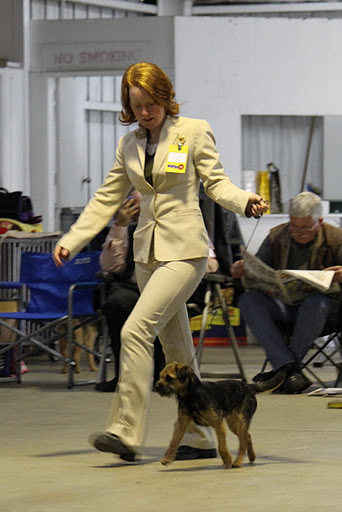5 Favourite Dog Blogs of 2011
While Rescued Insanity compiled a lovely list of blog posts she enjoyed for the year, I’m sitting here cursing that I never composed such a list! While I do post my favourite links, mostly blog posts, on my Twitter account, I can hardly fathom getting the number of my favourite blog posts down to an appropriate number to incorporate into one post. So please let me just promise that I’ll try harder next year.
Instead, I thought I’d write a post on my favourite dog blogs of the year. This is almost as an extraordinary feat, if you consider my blogroll length. However, I’ll try.
Here we go:
 Saving Pets. Written by PetRescue founder, Shel, this blog constantly, and edgily, challenges the shelter system in Australia. The blog is phenomenally well researched, well presented, and relevant. (On a side note, this blog is also responsible for almost everything I know about cats…) I get excited when I see Saving Pets come up in my Google Reader, and I hope you enjoy reading as well.
Saving Pets. Written by PetRescue founder, Shel, this blog constantly, and edgily, challenges the shelter system in Australia. The blog is phenomenally well researched, well presented, and relevant. (On a side note, this blog is also responsible for almost everything I know about cats…) I get excited when I see Saving Pets come up in my Google Reader, and I hope you enjoy reading as well.
 Reactive Champion. Crystal’s blog is more of a journey and dog training blog, no where near as specific as the title ‘Reactive Champion’ makes out. The diversity of topics is what I appreciate, and the time and effort evident in every one of Crystal’s post. Crystal’s well thought-out and clear explanations explore a host of dog related issues, from dog training to dog medication to reactive behaviours. What I really appreciate is the extensive notes that Crystal provides when she attend expos. Reactive Champion is very much ‘worth the read’.
Reactive Champion. Crystal’s blog is more of a journey and dog training blog, no where near as specific as the title ‘Reactive Champion’ makes out. The diversity of topics is what I appreciate, and the time and effort evident in every one of Crystal’s post. Crystal’s well thought-out and clear explanations explore a host of dog related issues, from dog training to dog medication to reactive behaviours. What I really appreciate is the extensive notes that Crystal provides when she attend expos. Reactive Champion is very much ‘worth the read’.
 Intellidogs. So this is not so much a blog as it is podcasts, but I simply cannot get enough. Karen Wilde and John Buskle present the podcast, and explore a variety of topics. I love that Karen and John come from different continents and have different doggy interests, and it really adds flavour to the show. This podcast often accompanies me as I do housework. I would absolutely miss the Intellidogs podcasts if they ceased to occur.
Intellidogs. So this is not so much a blog as it is podcasts, but I simply cannot get enough. Karen Wilde and John Buskle present the podcast, and explore a variety of topics. I love that Karen and John come from different continents and have different doggy interests, and it really adds flavour to the show. This podcast often accompanies me as I do housework. I would absolutely miss the Intellidogs podcasts if they ceased to occur.
 KC Dog Blog. Brent Toellner is an inspiration. His blog shows campaigns lodged against BSL and for no-kill. He also often includes extensive reviews of new dog studies, of media cases regarding dogs, particularly dog bites, and links to the most phenonemal other blog posts. How this man does it all, I have no idea! Though sometimes the content is very US specific, there is plenty of ‘other stuff’ to keep me entertained.
KC Dog Blog. Brent Toellner is an inspiration. His blog shows campaigns lodged against BSL and for no-kill. He also often includes extensive reviews of new dog studies, of media cases regarding dogs, particularly dog bites, and links to the most phenonemal other blog posts. How this man does it all, I have no idea! Though sometimes the content is very US specific, there is plenty of ‘other stuff’ to keep me entertained.
 My Puppy, My Self. I am not always engaged or driven by the content on this blog, but I really admire and enjoy the commitment and discussions around dog science. Also, there are normally some lovely links to dog science and dog discussions in his posts. For this reason, Lee Charles Kelley’s blog got into my favourite blog list.
My Puppy, My Self. I am not always engaged or driven by the content on this blog, but I really admire and enjoy the commitment and discussions around dog science. Also, there are normally some lovely links to dog science and dog discussions in his posts. For this reason, Lee Charles Kelley’s blog got into my favourite blog list.
What were your top 5 blogs for 2011?
See how this compares to our favourites of 2012. Continue reading



